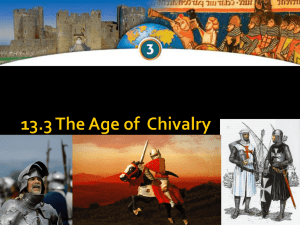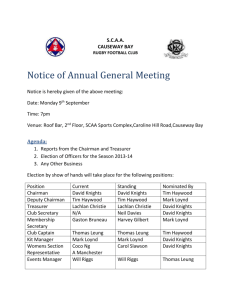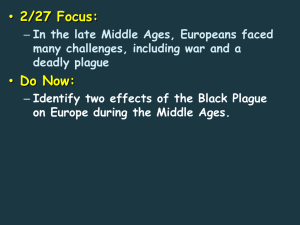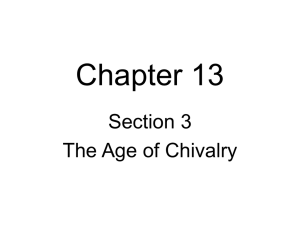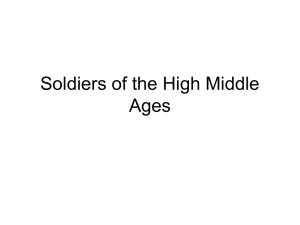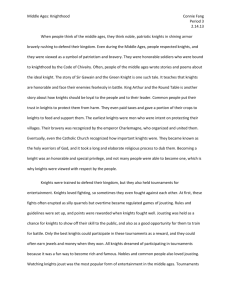Knights of Malta Knights of Malta
advertisement
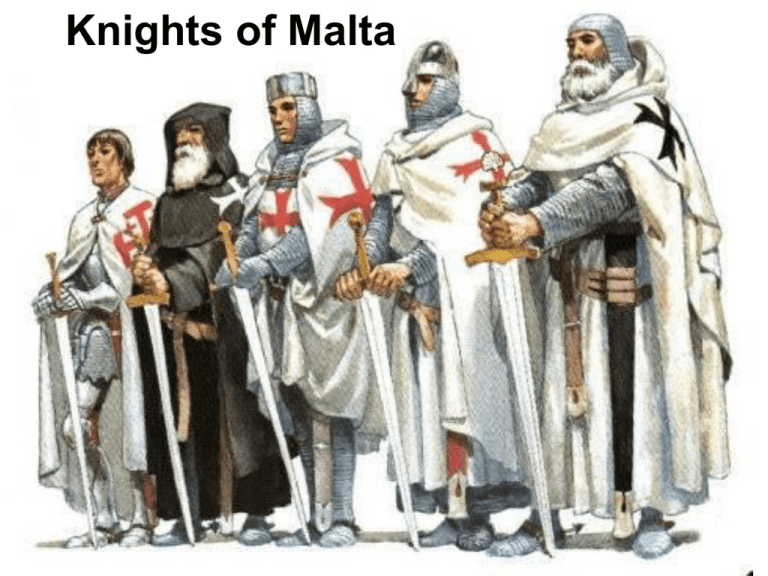
Knightsof of Malta Malta Knights The knights of Malta were first called St. John’s knights; when they settled in the island of Rodi they took the name of Rodi’s knights. In 1530 they were defeated by Soliman the Great and they had to leave Rodi. Some years later Emperor Charles V gave the Order permission to settle on the island of Malta. In 1565 led by ‘Grand Master’ Friar Jean de la Valette ( who gave the name to the capital of Malta) the knights defeated the Turks. Five major orders were formed in the Holy Land between the late 11th century and the early 12th century: the Knights of the Holy Sepulchre (about 1099). It traces its roots to Duke Godfrey of Bouillon, principal leader of the First Crusade. Templar Knights(about1118), Godfrey of Bouillon Knight of San Lazarus Hospitaller Knights(about1099) Teutonic Knights or Knights of the Hospital of St Mary of Jerusalem The knight was one of the three types of fighting men during the middle ages: Knights, Foot Soldiers, and Archers. He was covered in multiple layers of armour. Knights were also generally the wealthiest of the three types of soldiers. It was terribly expensive to be a knight. The war horse alone could cost the equivalent of a small airplane. Armour, shields, and weapons were also very expensive. Becoming a knight was part of the feudal agreement. In return for military service, the knight received a fief. In the late middle ages, many prospective knights began to pay "shield money" to their lord so that they wouldn't have to serve in the king's army. The money was then used to create a professional army that was paid and supported by the king. When they captured a city, they were allowed to ransack it, stealing goods and valuables.




